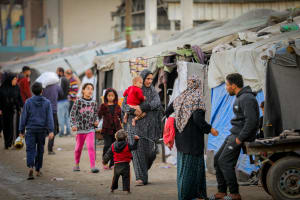The Mike Pompeo you haven’t met
Co-founders of the “Yalla” Show reveal former secretary of state’s personal side
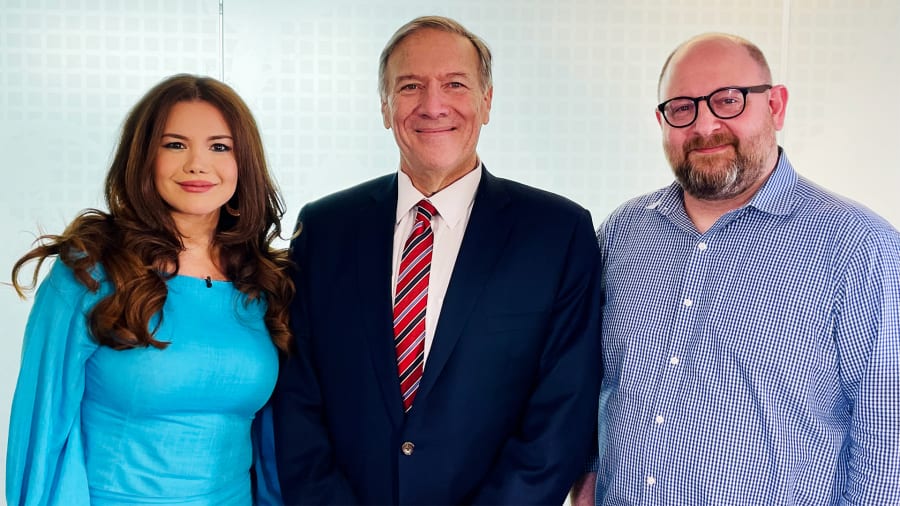
Mike Pompeo is not known for his warm and fuzzy style. The former U.S. secretary of state and CIA director is most familiar to people around the world as the hard-nosed American facing off against the likes of North Korea’s Kim Jong-un, China’s Xi Jinping and Iran’s Ayatollah Khamenei. He graduated at the top of his West Point Military Academy class and patrolled the Berlin Wall during the Cold War as a young U.S. Army cavalry officer.
Pompeo has a direct, no-nonsense demeanor, which can be intimidating. He calls it “swagger.”
“Swagger is confidence; in one’s self, in one’s ideas. In our case, it is America’s essential rightness. And it is aggressiveness born of the righteous knowledge that our cause is just, special, and built upon America's core principles,” Pompeo said when he became the 70th secretary of state.
When Pompeo agreed to an interview with our new Arabic-language show Yalla, we expected to meet a tough guy who talks about war, genocide and sanctions. While these issues are important – and the Middle East and North Africa (MENA) region has traditionally provided no shortage of such depressing stories – Yalla leaves the bad news to others. Instead, we wanted to find out about Mike Pompeo, the husband and father from Wichita, Kansas, and get his take on all the good news emerging from MENA, starting with the paradigm-shifting Abraham Accords.
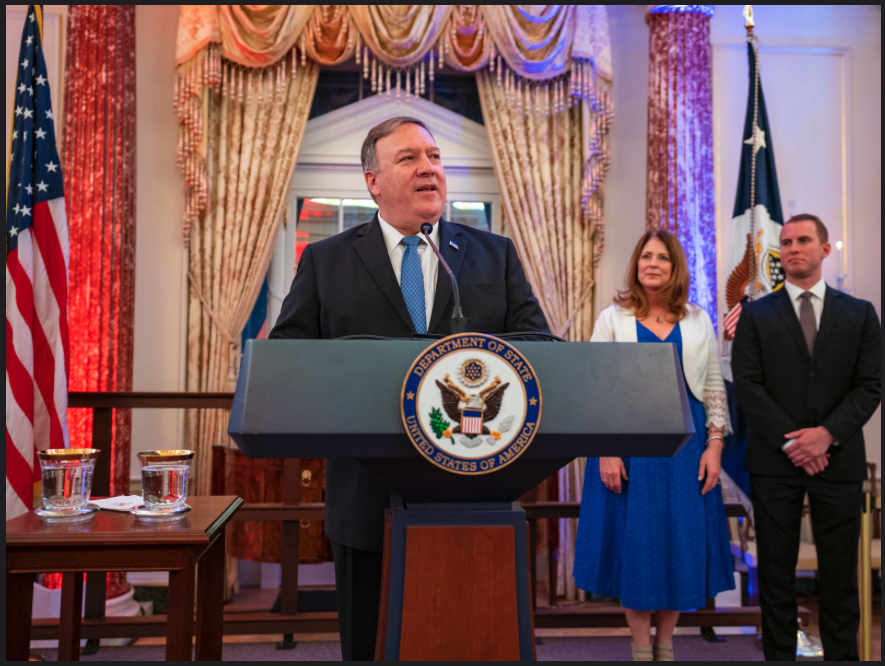
To quote Bob Dylan, “the times they are a-changin’”. The Abraham Accords peace agreements between Israel, the United Arab Emirates, Bahrain, Morocco and Sudan – facilitated by then-Secretary Pompeo and the United States – have opened the door to true, warm peace, promise and possibilities between the Muslim world and the Jewish state of Israel. “The children of Abraham,” as Pompeo refers to Christians, Muslims and Jews, are now shaping the MENA neighborhood into the most interesting place on earth.
Just look at the peace dividend in the last year alone. After the signing of the Abraham Accords, the economic benefits between its participants (as well as Egypt and Jordan, two countries that have previously signed peace deals with Israel) have soared. Collaboration is blossoming in high tech, healthcare, agriculture, education, and space. Religious differences are being celebrated and meaningful people to people friendships are growing stronger.
As the co-founders of a show about peace and coexistence, both of whom grew up under oppressive regimes – Hayvi Bouzo in Syria and Len Khodorkovsky in the Soviet Union – we know about the power of hope. People of the MENA region, who have been pulled apart by decades of conflict and misunderstanding, crave hope.
At the recent Negev Summit, the UAE Foreign Minister Sheikh Abdullah bin Zayed Al Nahyan accurately observed: “It’s time to catch up.” That’s exactly why a Syrian from a Muslim background and a Soviet Jew created Yalla – to catch up all of Abraham’s children and build on their common heritage, traditions and dreams.
During his interview with Yalla, Pompeo echoed our hope for the future of the Middle East and North Africa, declaring, “The best is yet to come.”
Here are some highlights.
Pompeo on the moment he realized peace is within reach:
There were so many moments when we were convinced it was going to happen and several when I was convinced it just might not. …What we really had take place was a series of really bold leaders, who were prepared to break a lot of glass, who were prepared to take some risks for what they knew would be a good thing in the long run for their own country. …We would always laugh because former secretaries of state would fly back and forth trying to negotiate about lines on the map, trying to settle this conflict with the Palestinians. We knew we wouldn’t be better at that than those who came before us. The leadership of Palestine was just not going to do anything, so we tried a different approach. …And there came a day when it became very clear that we had a group of at least two, maybe as many as five or six [countries] that would move forward and recognize Israel’s right to exist. What a glorious outcome.
On being optimistic that peace will continue blossoming:
The thing that’s most exciting to me is when somebody will pass me a note, or they’ll send me something that showed up on Twitter. Ordinary Bahrainis, or someone who’s been living in the Emirates who’s now living in Tel Aviv, some young student, or some kid who’s decided to make their business someplace else – when I see those things, you know [peace] is really taking root, this is not going to go backwards. This is an unfettered good thing for humanity, and for humankind, and for the people of every one of those countries.
On the next country to join the Abraham Accords:
I am confident that the Kingdom of Saudi Arabia will one day. I hope there will be Southeast Asian Islamic countries – Indonesia, Malaysia. …If America is prepared to lead, I am confident it will come sooner rather than later.
On America being a “force for good” in the region:
We’re not conquering countries. If we have sent soldiers to the Middle East, it was to try and protect the lives of people who were under threat from evil aggressors. …When we’ve shown up, people in the Middle East were safer. They were less at risk. They had more opportunities. …I’ve watched young people – women in Saudi Arabia, who for the first time think, “I’m going to have a chance to actually join the workforce” – America has played an important part of helping Saudi Arabia to get there. These are good things. This is how countries and people move forward, and the United States wants to be every bit part of it that it possibly can be.
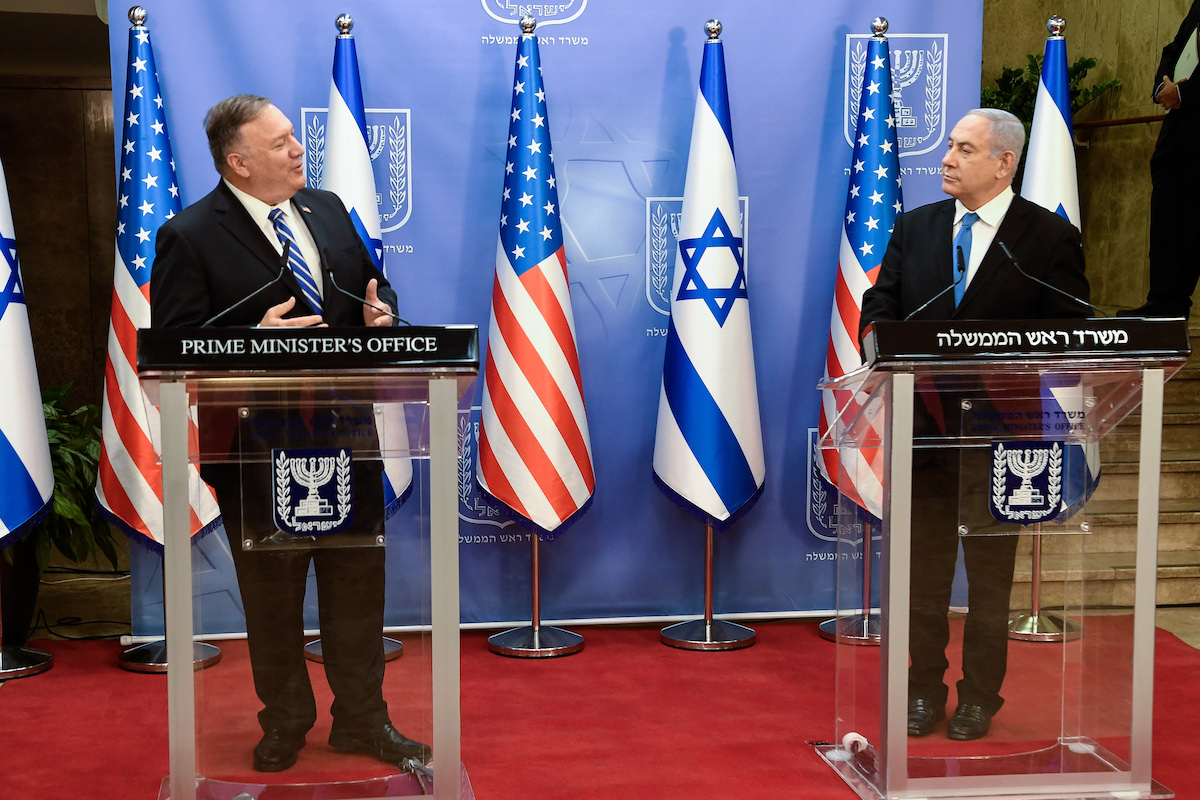
On why religious tolerance is important:
It’s so much at the core of human dignity. The right of every human being, no matter what circumstances they’re brought into life, whether it’s someone in terrible conditions in Africa or under the jackboot of Xi Jinping in Western China, every human being has this fundamental right to live their lives and practice their faith in the way they choose. And if they choose not to practice their faith, so be that. When you bring people together around this idea, you discover that you can expand the space of human freedom.
On his most memorable religious visit in the Middle East:
One of the highlights was visiting this beautiful church in Egypt [Cathedral of the Nativity in Cairo, Egypt] that had been built by President Sisi…[It was] right next to this huge mosque – brand new, all glorious. I think a synagogue is likely to go in there. …To see this place that has had so much difficulty, so much challenge because of Islamic extremism, to see it opening up to religions more broadly, and to see people be able to practice their faith more openly inside of Egypt was something I will never forget.
On his favorite Bible passage:
I saw that when I was the secretary of state, there were hard problems everywhere. There were no easy answers by the time they got to me, and when I handed something to the president for his decision, they were even harder. We were attacked for our faith. We were attacked because we were determined to protect and defend the American way of life, and I would remind myself of Ephesians. His letter to the apostles talks about putting on the armor of God everyday and recognizing there is something bigger than you. There is something even bigger than the job that you have or the country that you represent. There is something that is a higher power. And we tried to get it right every day. We didn’t do that here. We had earthly sin as everyone does. But it was certainly important for me to know that I had His strength, His protection helping me make good decisions every day.
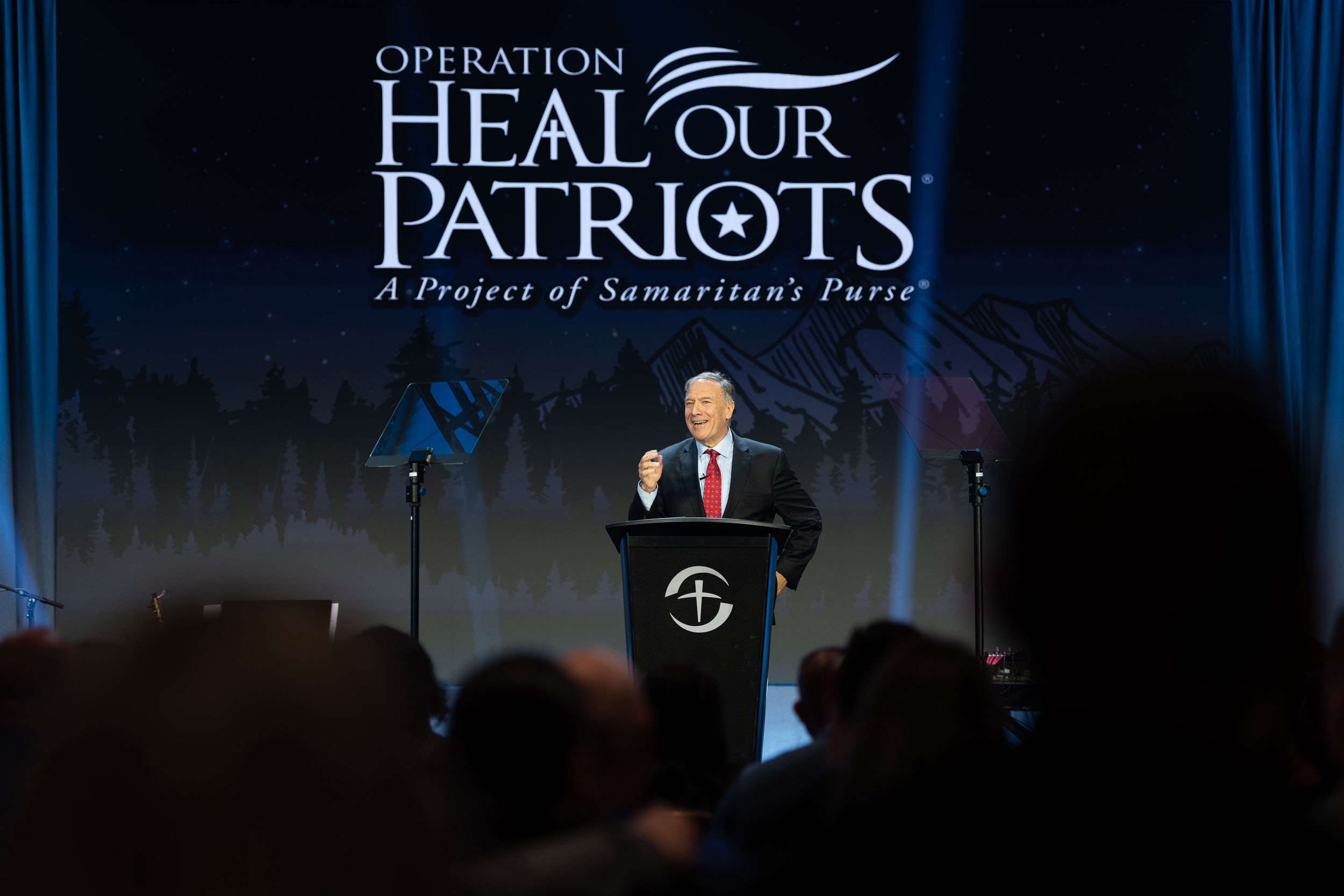
On tips for losing weight (Pompeo lost 90 pounds in six months):
There are no hidden secrets. Eat less and exercise more. I wish I had a better answer, that's how I did it. …It’s been a struggle of a lifetime, as it is for many. The most important thing is that I feel better and I am healthier, and I will be around for my grandkids, and I will spend the next 40 years with my beautiful wife, Susan.
On his favorite music genre:
Country music. I’m from Kansas.
On his favorite movie:
The Godfather – all of them. If I'm in a more lighthearted mood, more cheerful, I'm a big Anchorman fan. It’s a little embarrassing to admit that, but it's pretty darn funny.
On the one thing the public doesn’t know about Mike Pompeo:
There is nothing I love more than being with my wife and son. There is nothing more joyful than spending time with them. My son is getting married in July of this year. We are so happy. It’s a lovely young woman named Rachael Keller, and we are so looking forward to it.
There’s much more. Pompeo opens up about his faith, his meatballs recipe, what he does for fun and, of course, about his plans for 2024 (when he is considered to be a top-tier contender in the next American presidential election).
Watch the full Yalla interview with Mike Pompeo here.
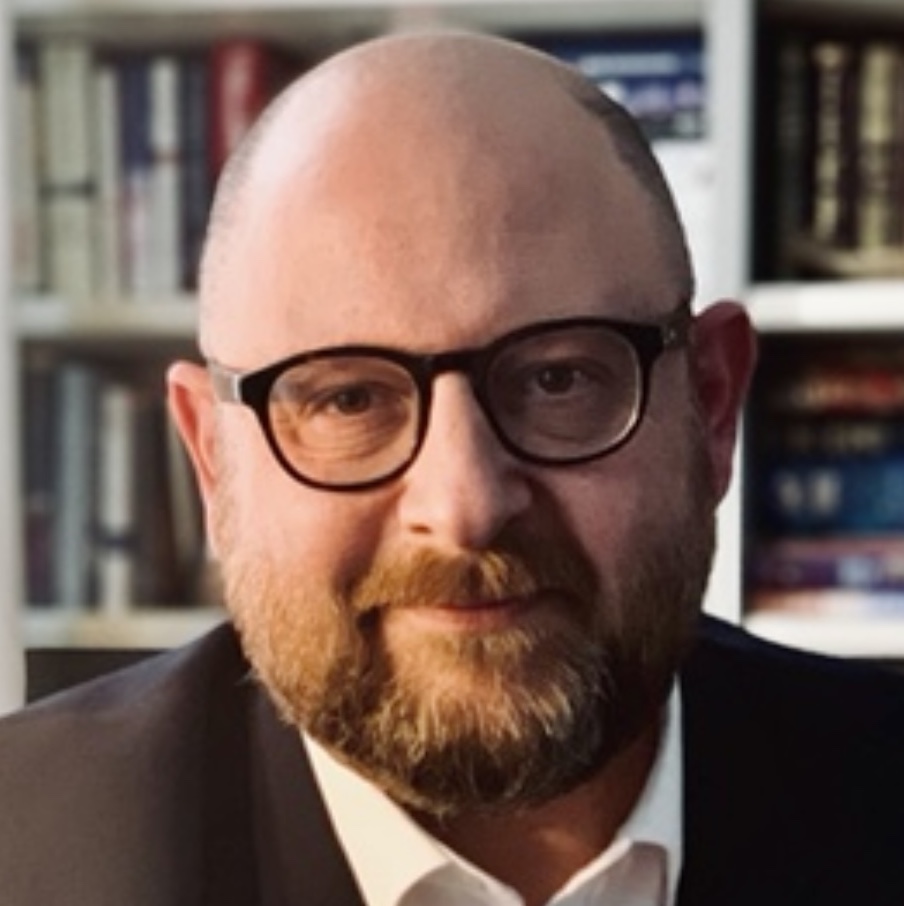
Len Khodorkovsky is a co-founder of Yalla. He is a former U.S. Deputy Assistant Secretary of State, Senior Advisor to the U.S. Envoy to Iran, and the Chief Marketing Officer of America’s economic diplomacy.

Hayvi Bouzo is a co-founder of Yalla. She was previously the Orient News Washington Bureau Chief. She was a writer and presenter of the network’s critically-acclaimed Mehwar program broadcast in more than 60 countries and watched by millions of viewers around the world.








